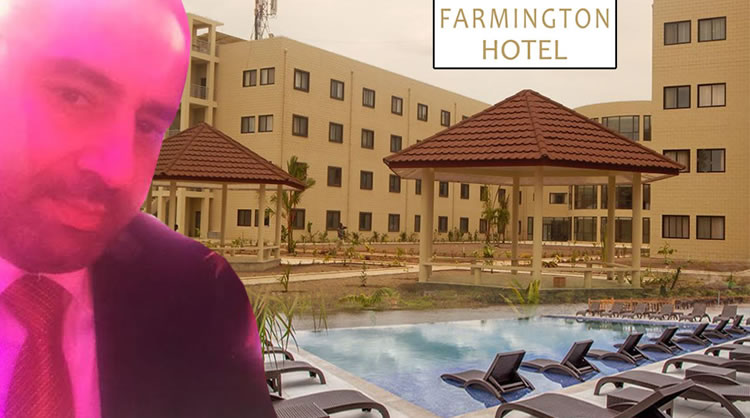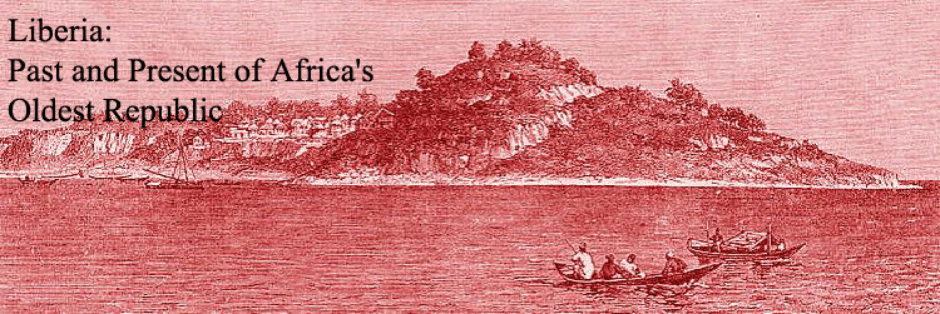
A few days ago one of Liberia’s leading newspapers, FrontPage Africa, published an interesting article entitled ‘Who’s running Liberia? Ask George Abi Jaoudi’. For three reasons, I like to share this article with you and I include here the link to the article and the many interesting comments on it.
First, the author is absolutely right in posing the question: ‘Who rules Liberia?’ For the outside world, Liberia is ruled by president Ellen Johnson Sirleaf aka ‘The Iron Lady’ – a nickname she prefers herself – and better known as ‘Africa’s first democratically elected female president’. In democratic terms: Liberia is being ruled by the Executive branch – the president – in combination with the Legislative branch – the Senate and the House of Representatives – whereas the democratic process, the rule of law, and much more, is being checked by the judiciary. The system of three independent, separated powers is called the Trias Politica model and is common for modern, democratic societies.
In reality, however, things are different. The judiciary does not act independently. Basic decisions are not taken by parliament. The president – sometimes with her inner circle – decides virtually everything in Liberia, bearing in mind the interests of foreign investors and other powerful people. This is not always in the best interest of the country and the Liberian people. This situation is well explained in the FrontPageAfrica article. Of course, more could be said on this issue but for briefness sake we will stop here. Before doing this, however, I want to emphasize here that Liberia under president Sirleaf is not a dictatorship, characterized by human rights violations. Freedom of speech, freedom of association, and freedom of the press are respected.
Secondly, the writer makes very clear that the official and non-official treatment of foreign investors and entrepreneurs by the Liberian government is highly uneven when compared to the treatment of Liberians who engage or want to engage in business – small and medium enterprise owners. Foreign investors like Abi Jaoudi, Arcelor Mittal and other mining companies, Sime Darby and other oil palm plantations, are very favorably treated when compared to Liberian enterprises. Tax holidays, large concession areas, even leading to the eviction of traditional farmers (‘land grab’) are ‘normal’ practices.
 The basic concept underlying this policy is better know as the ‘Open Door Policy’: the view that Liberia can only be developed by making use of foreign capital and knowhow. This policy is closely associated with president William Tubman, who ruled Liberia for 27 years (1944 -1971) and who considered the national treasury as his personal property. As I have also stated in my 2015 publication on Liberia, president Sirleaf has revived Tubman’s ‘Open Door Policy’. At one point, the Sirleaf Administration even – wrongly – claimed to have attracted foreign investments of at least US$ 20 billion.
The basic concept underlying this policy is better know as the ‘Open Door Policy’: the view that Liberia can only be developed by making use of foreign capital and knowhow. This policy is closely associated with president William Tubman, who ruled Liberia for 27 years (1944 -1971) and who considered the national treasury as his personal property. As I have also stated in my 2015 publication on Liberia, president Sirleaf has revived Tubman’s ‘Open Door Policy’. At one point, the Sirleaf Administration even – wrongly – claimed to have attracted foreign investments of at least US$ 20 billion.
As with the foregoing issue – democracy – in reality, things are very different as the positive role of foreign investments in the national economy is concerned. I have studied Liberia’s Open Door Policy since its very early days – the early 1900s – and readers are invited to go for more details to this link. I updated my study in 2015, including the Sirleaf period, the results can be found here. The preferential treatment of foreign investors and lack of incentives for Liberian-owned small and medium enterprises have certainly contributed to Liberia being one of the poorest nations in the world – among other reasons. It is a pity that the FPAfrica article does not elaborate on this aspect, but I understand that one cannot treat everything in just one article.
The third reason is that the situation described shows an astonishing resemblance with the situation in the 1970s, a period also referred to by FP Africa. When I was living in Liberia in the 1970s – years before the notorious 1980 coup or the two civil wars that devastated Liberia and its modern economy – the name Abi Jaoudi was already a household word in Liberia. In other words, and I react here with a question: ‘What has Liberia and what have Liberians learned from this episode?‘
I fully agree with the FP Africa article author that presidential candidates who aspire to move into the Executive Mansion should take position on the privileges granted to Mr George Abi Jaoudi. I would even like to go a few steps further and invite the main contenders: Boakai, Brumskine, Cummings, Mills Jones, Urey and Weah to publicly state their policy intentions with respect to ‘foreign investors versus Liberian entrepreneurs’ well before the presidential elections will be held on October 10 next.
